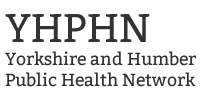Epidemiology and Public Health
The Covid pandemic brought this science to forefront of local, national and international responses to the Covid-19 pandemic . This modular programme was been designed to build knowledge and started with an introduction to Epidemiology and ended with its application in practice.
An introduction to Epidemiology
A short course from Dr Hannah Jordan, Lecturer in Public Health for the School of Health and Related Research (ScHARR)
Aims and Objectives
- Define epidemiology and describe the role of epidemiology in public health
- Explain the role of populations, samples and individuals in quantitative epidemiological research
Study designs
- Compare strengths and weaknesses of common epidemiological study designs
Interpreting epidemiology
- Interpret the effect of bias, confounding and chance on causal inference in epidemiology
- Interpret basic measures of disease frequency and measures of association and impact
- Distinguish between ideas of association and causation
- Begin to critically evaluate epidemiological findings from published research
Recording: https://youtu.be/NJpBo-2s1B4
Epidemiology of Communicable Diseases
A short course from Prof Andrew Lee, Professor of Public Health for the School of Health and Related Research (ScHARR)
Objectives:
- To gain an understanding of broad principles of the use of epidemiology within communicable disease control
Learning Outcomes:
- An understanding of the causes, distribution, natural history, clinical presentation of key local and international infectious diseases
- An understanding of the common epidemiological terms and concepts
- An understanding why effective use and interpretation of surveillance data is so critical to communicable disease control
- An awareness of the epidemiological skills in analysing infectious disease data and formulating appropriate control interventions
An awareness of the different approaches to surveillance and their limitations
Recording: https://youtu.be/IOHy7oKKs7g
Communicating Epidemiology in Practice
Dr Kev Smith, Deputy Director of Healthcare Public Health/Regional Director Public Health Commissioning reflects on the importance of Epidemiology and how this was used in response to Covid-19
The pandemic has thrust epidemiologists and epidemiological models into the policy and media spotlight like never before. In a world that relies on certainties, communication can often be a challenge within models of probabilistic forecasts from best to worst cases scenarios. This session will reflect on the challenges of communicating complex epidemiology in a dynamic and rapidly changing environment to public health professionals, policy makers and the public.
Recording: https://youtu.be/U97GnQ1I30U
